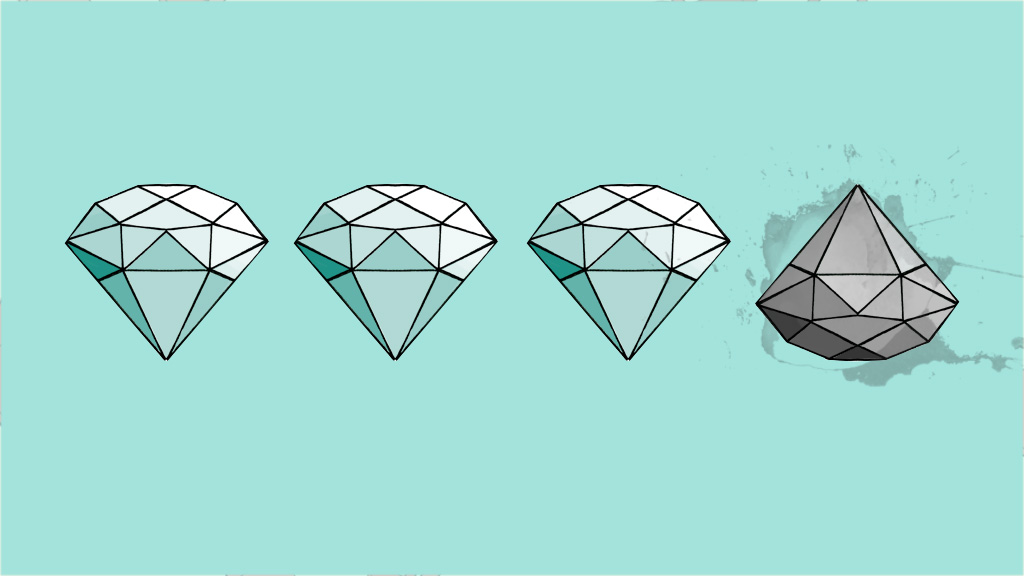Priceless in a Different Sense: Why We Should Boycott Diamonds
by Jake Krajewski | published Nov. 15th, 2015
"Diamonds are intrinsically worthless." Those are the exact words of De Beers chairman Nicky Oppenheimer.
If that's true, then why are diamonds so incredibly expensive? For example, Victoria Secret's new diamond-encrusted Fantasy Bra costs $2 million. The majority of the stones are diamonds, after all.
For those that don't know, De Beers is the world's leading diamond mining company. It's also, effectively, the world's only diamond mining company. De Beers is a cartel with a monopoly on the diamond trade, and they're playing all of us for suckers.
Originally, diamonds were very rare, only scarcely found in Brazilian and Indian riverbeds. In 1870, however, enormous diamond mines were discovered that allowed companies to mine massive quantities of the gems. It soon occurred to these companies that such a massive surplus of diamonds would destroy their value. In an effort to preserve their investments, they merged into one conglomerated company with absolute domination of the world's diamonds. In this manner, they were able to decide how many diamonds made it through to jewelers and companies that used diamonds for industrial purposes, like drill bits. Because they control the entire supply, they set the price.
For example, it's common practice for a man to surprise a woman he wants to propose to with a diamond engagement ring. The rule is that it should be worth two months' salary. This rule was invented, of course, by De Beers. As part of an ad campaign, De Beers promoted the idea that a diamond ring was the way a real man proposed to his bride-to-be. They said he should prove his love to her with a chunk of carbon worth a sixth of his yearly income. And because tests showed that women, when asked to purchase a diamond ring, would opt for a cheaper ring than men, they specifically stated that the man should surprise the woman with the ring, leaving her out of the decision. We need to realize that corporate marketing campaigns shouldn't dictate our traditions, especially one as highly-regarded as marriage.
You may also be familiar with the slogan "diamonds are forever." This was also a marketing campaign by De Beers to prevent the recirculation of diamonds. Currently, around 500 million carats of gem diamonds are possessed by the general public. If a portion of these diamonds were to go back on the market, diamond prices would tank. It's vital that the public believes that diamonds are worth holding onto, either as an investment or for sentimental purposes.
Part of the reason De Beers doesn't want anyone selling their diamonds is because they're well aware that they are not a sound investment. In the 1870's, a London magazine editor named Dave Watts did several experiments to see how well diamonds actually held their value. He made several attempts, waiting eight years with one diamond, a year with another and only a week with the last. He found that each time, the diamonds' values diminished substantially. A diamond he had bought for nearly 2,600 pounds was worth less than half that in only seven days' time!
We need to start a national revolution, of sorts. First, we need to abandon the idea of diamond engagement rings. A simple gold band should be more than enough, and a cheaper stone such as a sapphire would be a much more ethical and cost-effective choice if you still want something shiny. Next, we need to stop telling ourselves that diamonds are valuable. In fact, if we want to see the price of diamonds reach something more honest, we should all start selling our diamonds. Lastly, we need to boycott the purchase of new diamonds altogether. We shouldn't spend our money on something so ridiculously overpriced. Don't let a cartel siphon away your money with some sparkly stones.
Inform yourself and others about the true value of diamonds.



